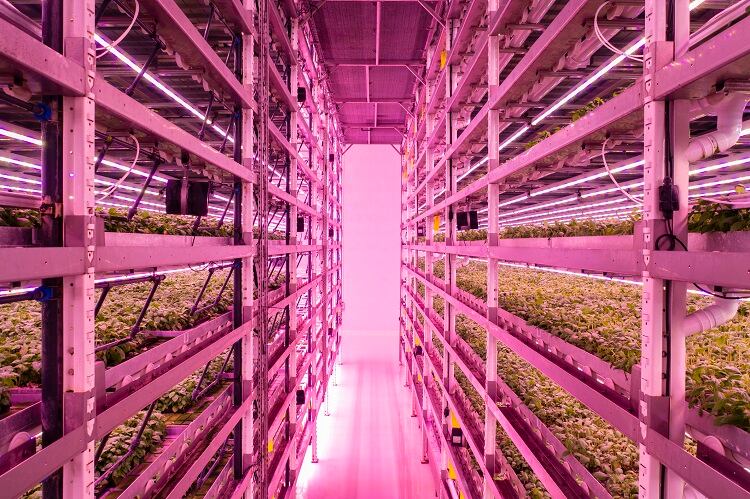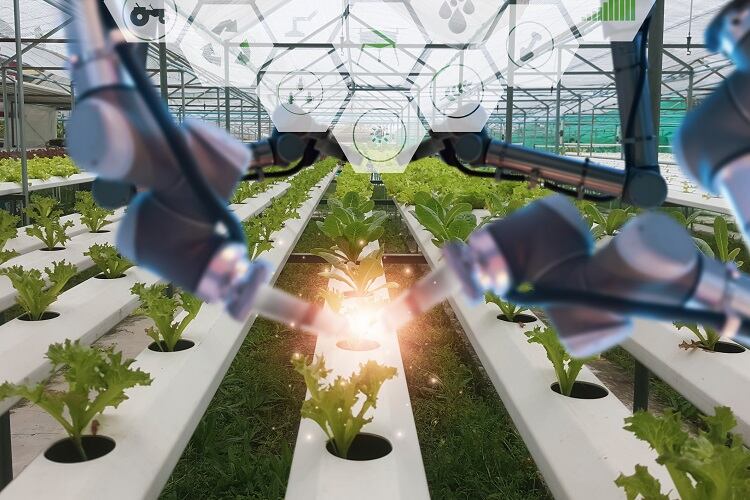Innovation is the very foundation of any industry, including food and beverage. What has facilitated increased production to accommodate growing population numbers? Innovation. What has helped to increase product shelf life, through processes such as vacuum packing? Innovation. What has helped to eradicate food-borne bacteria, through technologies such as germicidal ultraviolet lights? Innovation. And the list goes on and on.
Innovation is not just preferable for the food and beverage industry. It's essential. And as the global population continues to rise, and climate change continues to threaten the future of food production, its importance of innovation will only grow. Yet, in spite of this, recent figures show that investment through innovation in the food and beverage industry is declining, and perhaps more concerning, it’s been in decline for some time.
“Declining innovation has happened across all CPG industries, but food and drink has been one of the worst offenders,” Jonny Forsyth, senior director of food and drink at market insight firm Mintel, told FoodNavigator. “Genuine innovation (new launches or brands) was 26% of global food and drink launches in the first five months of 2023, whereas pre-COVID (2019) innovation was 33%.”
What's more, it appears that this is just the tip of the iceberg, in terms of the scale of the decline.
“The decline pre-dates the pandemic,” says Forsyth. “In 2009, the year of the global financial crisis, a slight majority (51%) of all new launches was innovation. By 2016, this figure had declined to 38%.”
And this shift in behaviour is being observed at all stages of the industry, with researchers reporting the same concerns.
“There’s noticeable evidence suggesting a decline in innovation within certain segments of the food and beverage industry,” Jack A Bobo, director of the Food Systems Institute at the University of Nottingham, told FoodNavigator.
So why is investment in innovation declining? And can the food and beverage industry endure a longstanding lack of innovation?

Why is innovation in food and beverage declining?
It appears that there are multiple reasons for the ongoing decline in innovation. And while some of these are trend led, and therefore less cause for concern, others are more alarming for the industry as a whole. Why? Because they indicate underlying issues with the future of food security.
Unsurprisingly, the primary reason for the decline in investment in food and beverage innovation is a result of financial instability.
“Economic factors are having a big impact,” says Bobo. “The current economic climate, marked by inflationary pressures and cautious consumer spending, has made investors more risk averse. They’re less likely to fund unproven or experimental products, leading to a slowdown in the development of new ideas.”
Furthermore, industry consolidation has played a role in stifling innovation.
“With fewer players in the market due to mergers and acquisitions, there’s less competition, which often leads to less incentive to innovate,” says Bobo. “Larger companies, focused on maximising efficiency and cutting costs, may not prioritise the kind of bold, risky innovation that smaller start-ups might pursue.”
Another issue relates to the regulation of the food industry. And while this is essential for consumer health and safety, it appears to be supressing innovation and experimentation.
“Regulatory challenges are playing a significant role," explains Bobo. "As governments tighten regulations around food safety, labelling, and health claims, companies are becoming more hesitant to experiment with new ingredients or production methods. The regulatory landscape can be complex and costly to navigate, making innovation a risky endeavour.”
Additionally, changes in consumer behaviours are impacting where the industry is choosing to invest. And while this might be understandable, it puts the industry at risk of being ill prepared for a potential return in consumer interest.
“One key indicator is the reduction in investment, particularly in areas like alternative proteins, where enthusiasm has waned,” says Bobo. “Initially, products like plant-based meats saw a surge of interest and investment, but recently, this has slowed down due to softer-than-expected consumer growth. Companies like Beyond Meat, which were once seen as pioneers, have faced challenges that have made investors more cautious.”
And, while not the most important issue of the day, this lack of innovation could also lead to foods and beverages becoming less exciting for consumers.
“Some of the more traditional sectors of the industry, like packaged goods, are seeing less innovation. Here, companies are focusing more on incremental improvements rather than on disruptive new products,” says Bobo.
Moreover, some food and beverage manufacturers feel they’ve taken certain products as far as they can.
“There’s only so much room to innovate in already crowded spaces,” adds Bobo.
Despite this, there is still investment in innovation within the food and beverage industry. In particular, artificial intelligence (AI) is proving game changing for all stages of food production, from farming right the way through to retail. But this doesn’t take away from the fact that investment in innovation has been on a downwards trajectory for well over a decade now.
So where does this leave the food and beverage industry, and will we see a return to investment in innovation in the future?

What are the long-term implications of declining innovation in food and beverage?
The biggest concern regarding the decline in innovation, in the food and beverage industry, is the potential failure of manufacturers to equip themselves for the future. There is also the very real risk that consumer trust in the industry will be further eroded as prices continue to rise, while quality remains unchanged.
“The majority of the sales growth in food and drink over the past 18 months has come from price rises, but what have consumers received in return for these rises? Not much, sometimes - in the case of shrinkflation - considerably less,” says Mintel’s Forsyth.
However, this could present opportunities for start-ups and smaller businesses.
“The rapid emergence of artificial intelligence (AI) and ecommerce could play a factor here,” says Forsyth. “Both lower the barriers to entry for smaller, direct-to-consumer brands, who can build their brand equity and sales online, develop a detailed understanding of their consumer, before pivoting into physical retail where they have a greater chance of success.”
In fact, the emergence of AI could help to redress the power balance between smaller and larger organisations, and strengthen innovation.
“AI means that being smaller is potentially less of a disadvantage because algorithms can help augment innovation, create marketing campaigns, develop consumer insights and support customer service,” adds Forsyth.
And industry experts appear confident that investment in the food and beverage industry will recover.
“I do believe innovation will bounce back,” says Bobo. “The food and beverage industry has always been adaptable, and as consumer demands continue to evolve - especially around health, sustainability, and convenience - companies will need to innovate to stay relevant. As economic conditions improve and new technologies emerge, we’re likely to see a resurgence in innovative ideas.”
But what can be done to help the industry to manage innovation in the face of existing challenges?
“Encouraging a culture of creativity and risk-taking within companies, alongside supportive policies and a favourable investment climate, is crucial for sustaining innovation,” says Bobo.




